Read real life stories from people in the muscle wasting and weakening community. Browse our blogs about a range of topics we think will interest you.
STORIES FROM OUR COMMUNITY
Filter by type
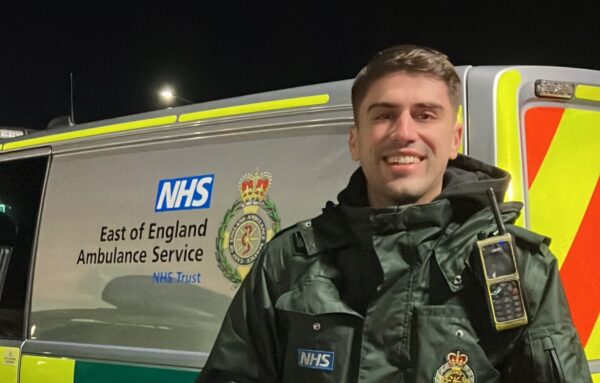
“FSHD hasn’t stopped me working as a paramedic.”
Ben is a frontline paramedic who lives with facioscapulohumeral muscular dystrophy (FSHD). Despite receiving a diagnosis just before his career started, he’s still working in his dream job three years later.
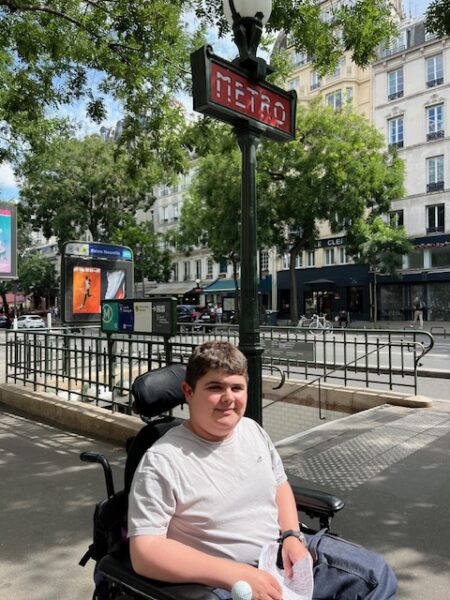
“I live a full and active life with Duchenne, and so can others.”
Alfie is 19 and lives with Duchenne. In recognition of Duchenne awareness day, he shares his story about living at university, his passions for history and travel, and his thoughts on why awareness days like this are important.
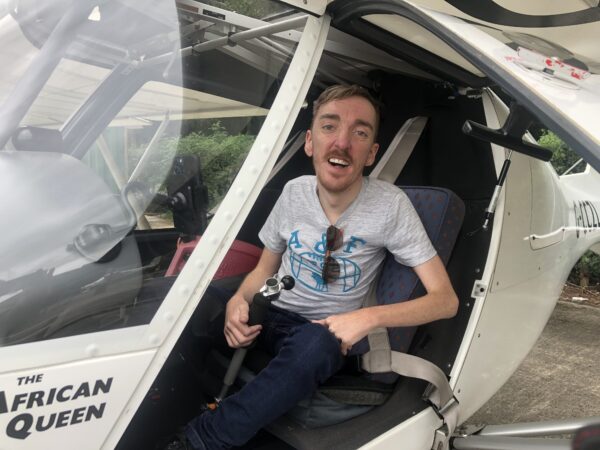
“I fly airplanes and have muscular dystrophy – never let anyone tell you something’s impossible.”
After a difficult period of muscle deterioration, Matthew found a passion for flying gave him a new purpose. Matthew has a specially adapted small aircraft that he flies across Northern Ireland in his free time. He shares his journey of learning to become a pilot with the Flying Scholarships for Disabled People charity, the types of adaptations that are available for people with disabilities, and why flying is so important to him.
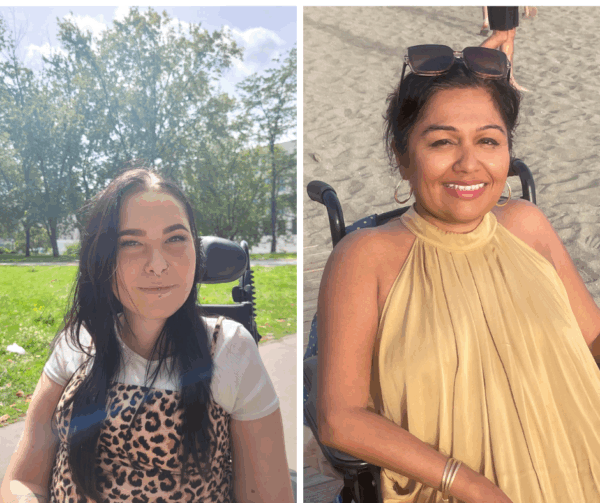
The effects of climate change on our community
As our planet faces more extreme weather events and rising temperatures, people with muscle wasting conditions are experiencing unique challenges — yet our voices are often missing from conversations about climate change.
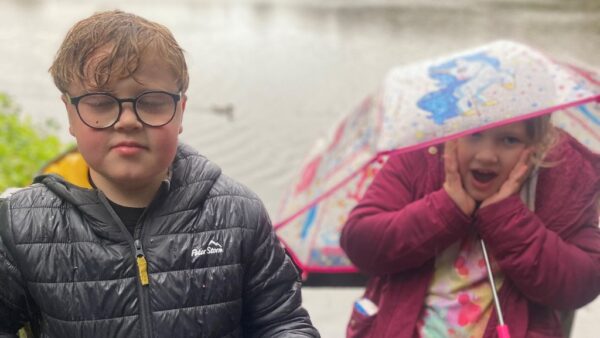
Cycling 100km to kickstart fundraising for ‘Declan’s Muscle Mission’
On 12 July, Claire Ellis cycled 100km in support of her son Declan, 11, who lives with Duchenne muscular dystrophy. She was joined by her partner Lewis, and the pair raised over £500. But this is just part of the family’s fundraising journey as they have set themselves a series of challenges. Claire explains why they started ‘Declan’s Muscle Mission’.
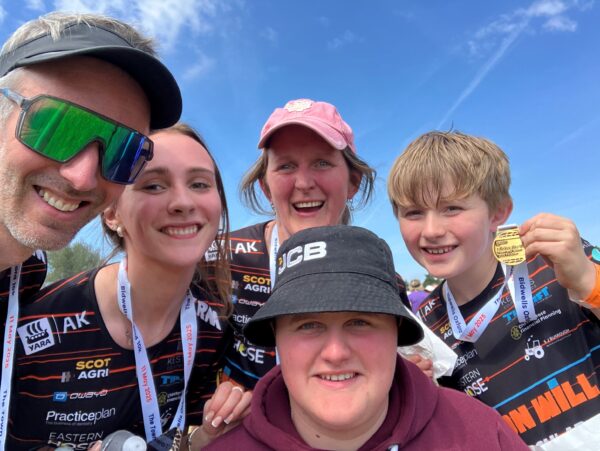
“It’s possible to make a difference now for people like Will”
On Thursday 28 August, Sam Taylor, his wife Sue, and daughter Beth will set off to start ‘Iron Will 2025’, a long-distance triathlon created in support of Sam's eldest son Will, 16, who lives with Duchenne muscular dystrophy.
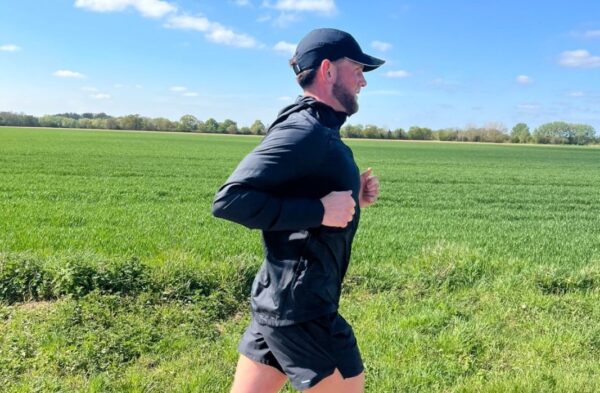
He lives with daily pain and yet continues to show strength. I’m doing this for him.
Harry O’Callaghan explains how his friend Jason, an elite golfer and former firefighter who lives with limb girdle muscular dystrophy, has inspired him to run a 95km ultramarathon from his home city of Cambridge to the Emirates Stadium in North London.
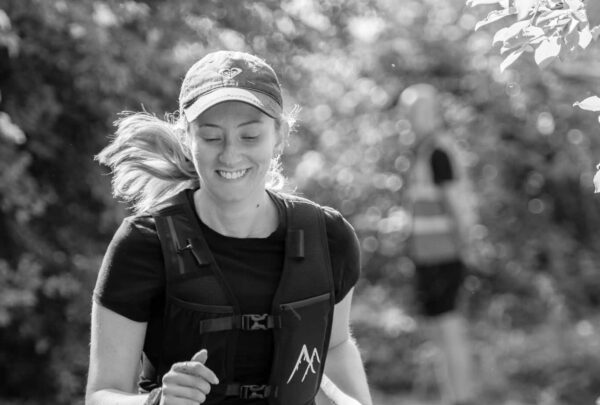
Running a half marathon with a hidden disability
Stephanie Cooper, diagnosed with CMT in 2024, takes on the 2025 Great North Run to raise awareness and funds for research into this muscle-wasting condition.
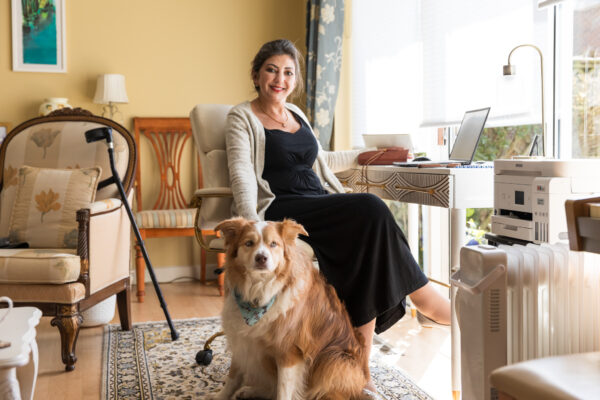
My journey as a disabled entrepreneur – not the road most travelled, but one that’s mine
Umbreen, a disabled entrepreneur, shares her journey to winning the Stelios Award, overcoming challenges, and leading a care home business.
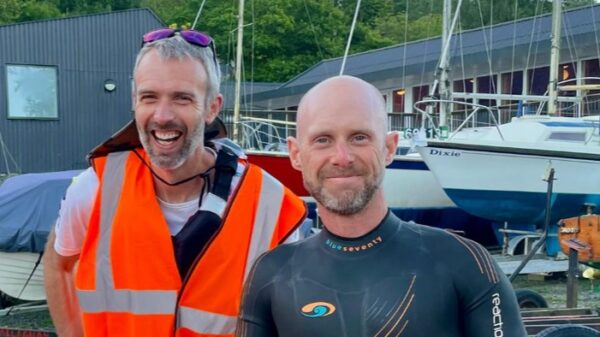
London to Paris – the hard way! Arch 2 Arc triathlon in support of friend’s son
Sam Weale attempts the grueling Enduroman Arch 2 Arc triathlon: 87-mile run from London to Dover, English Channel swim, and 181-mile cycle to Paris. Inspired by friend’s son Will with Duchenne muscular dystrophy, raising funds for vital research at Muscular Dystrophy UK.
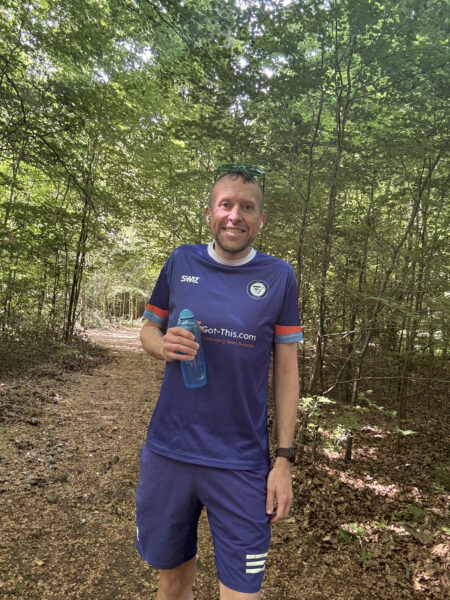
‘I couldn’t even run 100 metres at school, now I’m running 5ks — here’s what I’ve learnt.”
From living with Becker muscular dystrophy and school humiliations to conquering a 5K run: Discover Andrew's inspiring journey of defying expectations, building confidence, and proving that every story of resilience matters.
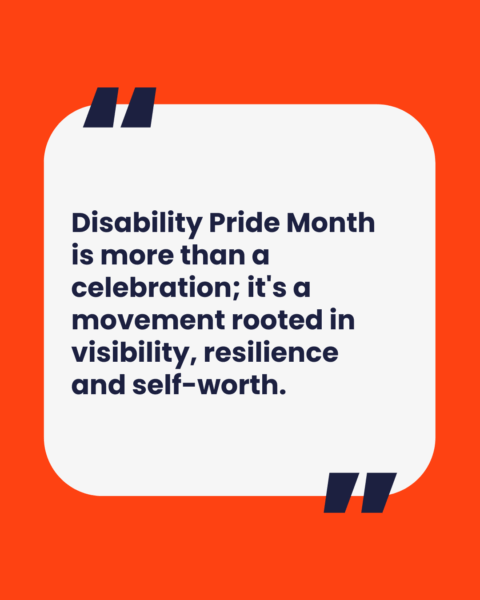
Celebrating strength: Disability Pride Month in the muscle wasting community
Celebrate Disability Pride Month with the muscle wasting community, embracing strength, resilience, and diversity. Learn about our challenges, share our stories, and join us in breaking stigma and promoting inclusion.